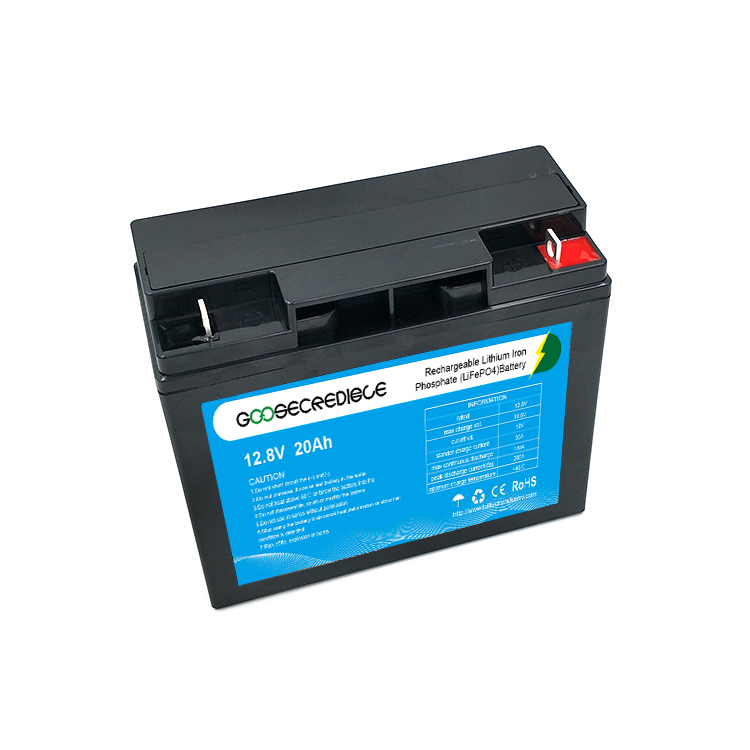what is a sulfated battery
A sulfated battery, also known as a sulfation battery, is a type of lead-acid battery that has experienced a build-up of lead sulfate crystals on its electrodes. This condition, known as sulfation, occurs when the battery is left in a discharged state for an extended period or is subjected to continuous undercharging.
Lead-acid batteries are widely used in various applications, including vehicles, boats, and backup power systems, due to their high energy density and low cost. These batteries consist of lead plates immersed in an electrolyte solution of sulfuric acid. During the charging process, the lead sulfate converts back into lead and sulfuric acid, replenishing the battery’s energy capacity.
However, if a lead-acid battery remains in a discharged state, the lead sulfate crystals may not convert back into lead and sulfuric acid. Instead, they form a layer on the surface of the electrodes, reducing the available surface area for the electrochemical reactions to occur. This sulfation process gradually reduces the battery’s ability to hold a charge and deliver power.
Sulfation is a common occurrence in lead-acid batteries and can be caused by various factors. One of the primary reasons is leaving the battery discharged for an extended period. If a battery is not used or recharged regularly, the lead sulfate crystals will continue to accumulate and harden over time. Additionally, continuous undercharging, where the battery is not fully charged during each cycle, can also lead to sulfation.
The effects of sulfation on battery performance can be significant. As the sulfation layer thickens, the battery’s internal resistance increases, making it more challenging for current to flow. This resistance causes a reduction in the battery’s capacity, resulting in decreased run-time and overall performance. Ultimately, a heavily sulfated battery may become unable to provide the power required for its intended application.
To mitigate the effects of sulfation and extend the battery’s lifespan, various desulfation methods are available. One common approach is to apply a higher charging voltage to the battery, known as an equalization or desulfation charge. This higher voltage helps break down the lead sulfate crystals and restore the electrodes to their original state. However, this method must be performed cautiously and with the manufacturer’s recommended guidelines to avoid damaging the battery.
Another method involves using specialized desulfation devices that emit high-frequency pulses or voltage spikes to break down the sulfation layer. These devices are designed to dissolve the lead sulfate crystals and prevent further accumulation, allowing the battery to recover some lost capacity.

Preventing sulfation in the first place is the best approach to maintain battery health. Regularly charging the battery and avoiding extended periods of discharge can help prevent sulfation from occurring. Additionally, maintaining the recommended charging voltage during charging cycles and avoiding undercharging can also reduce the risk of sulfation.
In conclusion, a sulfated battery is a lead-acid battery that has experienced sulfation, which is the formation of lead sulfate crystals on its electrodes. Sulfation occurs when the battery remains in a discharged state for extended periods or is continuously undercharged. This condition reduces the battery’s capacity and overall performance over time. Various desulfation methods are available to restore a sulfated battery, but prevention through regular charging and avoiding undercharging is the best approach for maintaining battery health.
-
 When it comes to powering our modern day devices and appliances, batteries have become an integral part of our lives. From powering our phones and laptops to supporting renewable energy systems, batteries play a crucial role in our daily lives. However, choosing the right battery can be a daunting task, especially when it comes to high-capacity batteries like 100Ah LiFePO4...Læs mere
When it comes to powering our modern day devices and appliances, batteries have become an integral part of our lives. From powering our phones and laptops to supporting renewable energy systems, batteries play a crucial role in our daily lives. However, choosing the right battery can be a daunting task, especially when it comes to high-capacity batteries like 100Ah LiFePO4...Læs mere -
 In today's technologically advanced world, we rely heavily on electronic devices to stay connected, get work done, and entertain ourselves. However, the constant need for power to keep these devices running can be a challenge, especially when we are on the move or in remote locations. This is where the High Capacity 12V 100Ah LiFePO4 Battery comes into play, offering...Læs mere
In today's technologically advanced world, we rely heavily on electronic devices to stay connected, get work done, and entertain ourselves. However, the constant need for power to keep these devices running can be a challenge, especially when we are on the move or in remote locations. This is where the High Capacity 12V 100Ah LiFePO4 Battery comes into play, offering...Læs mere -
 As more and more businesses and homes rely on backup power systems for emergency situations or everyday use, the demand for reliable and long-lasting batteries is increasing. One type of battery that is gaining popularity for backup power systems is the Lifepo4 battery, known for its high energy density, long cycle life, and safety features. If you are looking...Læs mere
As more and more businesses and homes rely on backup power systems for emergency situations or everyday use, the demand for reliable and long-lasting batteries is increasing. One type of battery that is gaining popularity for backup power systems is the Lifepo4 battery, known for its high energy density, long cycle life, and safety features. If you are looking...Læs mere -
 As global attention to environmental protection and energy efficiency continues to deepen, the automotive industry is facing unprecedented challenges and opportunities. Against this background, large-capacity vehicle start-stop battery technology emerged as the times require, becoming a key technology for improving vehicle performance and achieving the dual goals of energy conservation and emission reduction. Start-stop technology, as an advanced energy-saving method,...Læs mere
As global attention to environmental protection and energy efficiency continues to deepen, the automotive industry is facing unprecedented challenges and opportunities. Against this background, large-capacity vehicle start-stop battery technology emerged as the times require, becoming a key technology for improving vehicle performance and achieving the dual goals of energy conservation and emission reduction. Start-stop technology, as an advanced energy-saving method,...Læs mere -
 Lithium iron phosphate battery, as a lithium-ion battery with lithium iron phosphate (LiFePO?) as the positive electrode material and carbon (usually graphite) as the negative electrode material, occupies an important position in the field of modern energy storage with its unique performance and advantages. This article will explore the working principle, main characteristics and technical details of lithium iron phosphate...Læs mere
Lithium iron phosphate battery, as a lithium-ion battery with lithium iron phosphate (LiFePO?) as the positive electrode material and carbon (usually graphite) as the negative electrode material, occupies an important position in the field of modern energy storage with its unique performance and advantages. This article will explore the working principle, main characteristics and technical details of lithium iron phosphate...Læs mere -
 Introduction: In recent years, the need to improve efficiency and reduce carbon emissions in warehouse operations has become a top priority for businesses. One technology that is revolutionizing warehouse efficiency is the electric forklift with a lithium battery. This innovative solution not only offers significant advantages over traditional lead-acid batteries but also provides a more sustainable and cost-effective alternative...Læs mere
Introduction: In recent years, the need to improve efficiency and reduce carbon emissions in warehouse operations has become a top priority for businesses. One technology that is revolutionizing warehouse efficiency is the electric forklift with a lithium battery. This innovative solution not only offers significant advantages over traditional lead-acid batteries but also provides a more sustainable and cost-effective alternative...Læs mere -
 Introduction: In recent years, there has been a growing demand for electric vehicles (EVs) due to their environmental advantages and potential to reduce carbon emissions. One segment of the EV market that has gained significant attention is low-speed electric vehicles (LSVs). LSVs are typically used for short-distance transportation, such as within gated communities, campuses, or urban areas. This article explores...Læs mere
Introduction: In recent years, there has been a growing demand for electric vehicles (EVs) due to their environmental advantages and potential to reduce carbon emissions. One segment of the EV market that has gained significant attention is low-speed electric vehicles (LSVs). LSVs are typically used for short-distance transportation, such as within gated communities, campuses, or urban areas. This article explores...Læs mere

